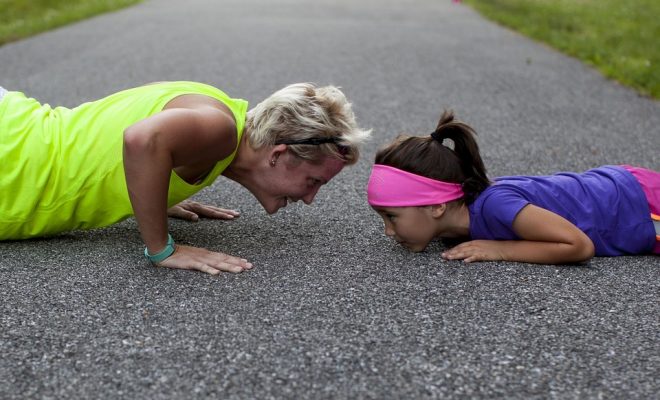Pull Your Own Weight: Every kid has a body
**The Edvocate is pleased to publish guest posts as way to fuel important conversations surrounding P-20 education in America. The opinions contained within guest posts are those of the authors and do not necessarily reflect the official opinion of The Edvocate or Dr. Matthew Lynch.**
A column by Rick Osbourne
At the risk of pointing out the blatantly obvious, every kid has a body. Actually in my 60 plus years here on Earth I’ve never met (and neither have you) even one kid (or human being) who did not have a body.
As a matter of fact, at the youngest stages, the body, for all practical purposes, is the self. In the middle stages the body is still a fundamental aspect of the self. And at the latter stages the body continues to be a fundamental aspect of the self. In other words, no body…no self *.
To quote Nietzsche’s Thus Spoke Zarathustra (from a chapter entitled On the Despisers of the Body) he states “I want to speak to the despisers of the body. I would not have them learn or teach differently, but merely say farewell to their own bodies – and thus become silent.”
Yet in Modern Educational Circles…
So when you really sit down and think about it, one’s body is more than just kind of important. It is absolutely and unequivocally a fundamental foundation of one’s being. Yet in our nation’s schools and modern educational circles we celebrate advances in math. We celebrate advances in science. And we celebrate advances in reading and test scores and anything that has to do with the mind and the brain – at the expense of the physical body. In academic circles Physical Education is too often considered a second class citizen, deserving little more than a seat in the back of the educational bus.
Spark and Brain Rules
Even in two recently published books that make ironclad cases for the crucial role of physical movement in the learning process (entitled Spark and Brain Rules) Dr. John Ratey and Dr. John Medina both treat the body as merely a means, in service to the mind, the brain. In other words, improved math, science, and reading scores are the primary goals. The physical body is perceived as a means to (thus subservient to) those primary goals.
Inverted Priorities
Nietzsche/Zarathustra (who also refers to the body as “The great reason”) would tell both Ratey and Medina that they have their paradigms inverted and their priorities upside down. “The self says to the ego, feel pain here! Then the ego suffers and thinks how it might suffer no more – and that is why it is made to think. The self says to the ego, feel pleasure here! Then the ego is pleased and thinks how it might often be pleased again – and that is why it is made to think.” **
Control Your Body, Control Your Self
Modern educators could do well by taking a tip from Nietzsche/Zarathustra and begin the educational process by helping students learn about, understand, and control this fundamental aspect of themselves, their own body. With a solid physical foundation upon which to build, they can then successfully add math, science, and reading. (If you really want to get adventurous you could add philosophy, politics, and religion.) But without that foundation there is no such thing as math, science, and reading. If we get our priorities straight, education might even begin to make sense to kids one of these days. And wouldn’t that be a good thing?
*I also agree with anyone who claims that the body without the mind is equally meaningless.
**Nietzsche precedes Freud (and others) in recognizing the overwhelmingly unrecognized significance of the unconscious, the id, what Nietzsche simply refers to as “the self, the body.”
_____
Rick Osbourne is a former physical educator and a pioneer in the field of functional childhood obesity prevention. He currently serves as President of the Pull Your Own Weight Foundation which is an Illinois based, 501c3, not for profit organization whose focus is functional childhood obesity prevention. He’s written and published three books in this field, the latest of which is entitled Beating Childhood Obesity Now: A Simple Solution for Parents and Educators. He’s the Examiner’s national childhood obesity prevention correspondent. He writes an online column for The Edvocate. And you can connect with Rick via Twitter, Linkedin, or Facebook.



